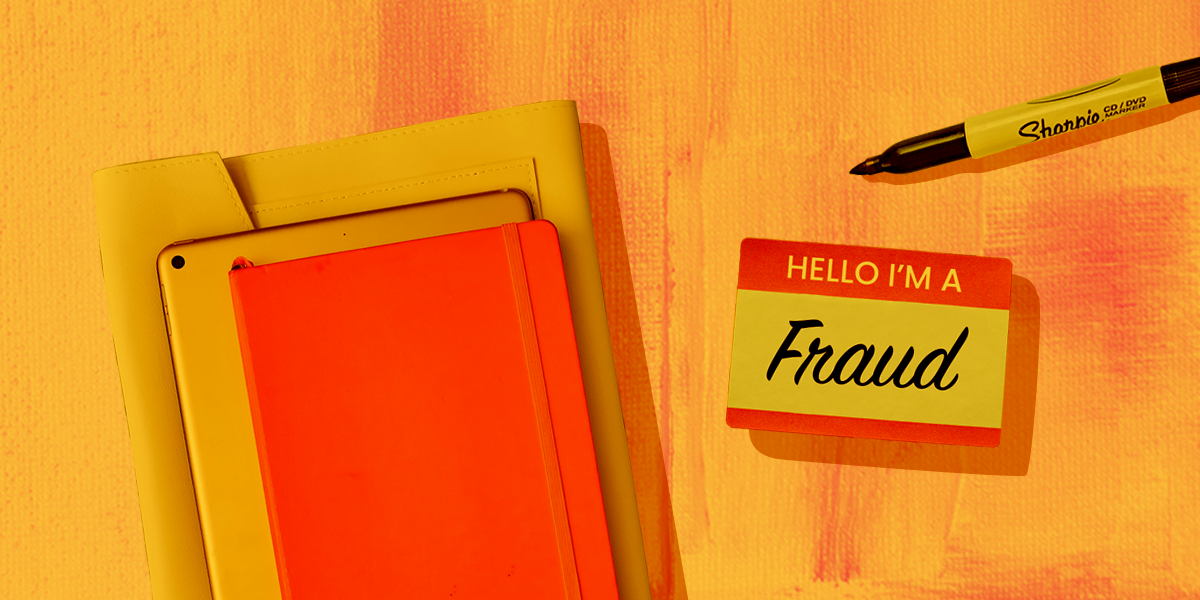
Whether it’s your first one or your fiftieth, job interviews can be intimidating. It’s a little bit like going on a first date—you have to present an image of yourself that is both honest and impressive, or else face rejection.
But learning how to sell yourself in an interview isn’t easy and doesn’t come naturally to most people. To pull this off, you have to push away your humbleness and be willing to talk openly about your achievements, while also portraying your shortcomings (like lack of experience) as something positive (like an eagerness to learn).
Here are exercises to try before your next interview—if you give these a shot, you’ll learn how to be confident in an interview and get that job you’ve got your eye on.
Do thorough research ahead of time
I’m starting this list off with the #1 thing you must do if you really want to sell yourself in an interview. Surprisingly, this tip doesn’t have much to do with you at all—it has to do with the company you’re applying to.
Interviewers are looking for someone who not only fits the job description but someone who is also passionate about the role. They expect you to have done your research—and if it’s clear you haven’t, then you’ll bomb the interview right at the start.
So before you go into any job interview, take an hour or two to do some thorough research. Here’s what to look for:
- Visit the company’s website, and read through all their services pages, About section, and anything else that seems interesting.
- Hop on LinkedIn and check out the profiles of some people who work there, including the people in your interview.
- Visit the company’s social media profiles and see what topics they’ve been talking about or advocating for lately.
- Check out Glassdoor.com (or a similar site) and see what current and former employees have to say about the company.
As you do your research, take notes. This will help you memorize important information, which you can pull out during the interview to show how prepared and confident you are.
Read between the lines of the job description
Typical job descriptions list specifics of what’s involved in a role—they’ll mention the skills and tools they want you to be familiar with, the experience they want you to have, and your regular duties.
But if you’re hoping to sell yourself in an interview, it pays to read between the lines of the job description to find out what the company really wants out of their new hire.
For example, let’s imagine you read the following sentences in a job description:
On the surface, this sentence tells you what they want in their next hire—they need someone who can manage things independently and lead others as well.
But pause to think about what this sentence implies about the company’s deeper struggles. Perhaps the last person to fill this role needed a lot of handholding. Or maybe the manager for the position is incredibly busy and won’t have a lot of time to dedicate to training and guidance.
This kind of insight gives you a better picture of what the company’s ideal candidate will look like. They don’t just want someone who is a self-starter—they want someone who will save the manager time.
With this info in mind, you can now practice how to showcase your ability to meet that deeper need.
Build confidence with what you’re wearing
I’m not here to tell you that you have to wear a suit and tie or a nice dress to your next job interview. These days, doing that might work against you. Many jobs have very casual dress codes or none at all (especially if they’re a remote company).
But being thoughtful about what you wear to your job interview is still important, if only because it gives you the confidence to feel like you’re presenting a clean, professional version of yourself.
The best way to figure out what to wear is to find out the company’s dress code policy. You might be able to do this by looking at pictures on social media and the internet, but if not, it’s perfectly fine to ask your interviewer a question like, “Just so I’m prepared, what is the dress code policy at the company?” Whatever they answer is what you should wear to your job interview.
If you’re unsure about the dress code, your next best bet is to simply look nice and professional. This means wearing clean, wrinkle-free clothes that don’t have any garish logos or distractive writing on them.
Even if the interview only happens over a video call, you still should look your best. Don’t risk it and wear sweatpants on the bottom—you never know when you might need to stand during the interview. Besides, being fully dressed head to toe will make you feel more confident and prepared.
Practice common interview questions
Every interview will be unique, but there are certain questions that will likely come up during an interview.
For starters, you can almost guarantee the interviewer is going to ask you about your previous experience, accomplishments at your previous job, and a few questions about your personality and working style.
Related:
Of course, there will be questions that you don’t expect—but having answers prepared for the most likely questions will be a huge help when it comes to selling yourself in an interview.
Start by jotting down a few notes on the points you want to bring up for each question. Then, try speaking those aloud to put them into a formal answer. Do this a few times, and if you have a friend or family member who’s willing to help, do a little roleplaying and take their feedback on your answer on board.
If you do this enough, you’ll have the very best answer prepared and memorized before the interview.
Focus on your achievements and advantages
When you’re buying a product online, have you ever noticed how most sellers will list the positive attributes of the item at the top of the page? That’s because people are more willing to purchase something if they know all the positive things it can do right from the start.
This practice applies to selling yourself in an interview as well. Throughout the interview, you want to consistently highlight the things you’ve achieved, and the advantages you would bring to the job.
This can feel a lot like bragging, but in a job interview, it’s a method of showing your own confidence in your abilities. You want to demonstrate concrete evidence of your success, so be specific in the things you’ve done and the impact they’ve had in previous professional environments.
Even if you’re applying for your very first job, you can still draw upon moments in school or your personal life when you’ve done something successfully and made a positive impact. For example, you might talk about a leadership role you took on a group project in school (and mention how impressed your professor was) or discuss a moment of conflict between friends that you mediated successfully.
If you’ve had previous jobs, think back to moments when you got really good feedback from your boss, colleagues, or clients/customers. What did you do, specifically, to achieve these results? What impact did it have from that moment forward?
Highlight this, and you’ll have an easy time impressing your interviewer.
Prepare a presentation or strategy for the interview
If you really want to sell yourself in an interview, you should be ready to go above and beyond to set yourself apart from other candidates.
One way to do this is to prepare a small presentation or strategy for the interview before they ask for it.
For example, you could create a “First 30 Days Plan” to show them what you think you should achieve in your first month on the job. Or you could create a strategy based on what’s asked in the job description: If they say they want someone who can help them roll out their new website, create a few slides or a nicely designed PDF that lays out what your process would be. (Canva is a great tool for easily creating beautiful documents that will really impress.)
It’s a good idea to let the interviewer know ahead of time that you’ve put something together. You don’t want to hijack the interview agenda, so try saying something like, “If we have time, I’d like to take a few minutes to walk you through a strategy I put together.”
Come with your own questions to ask
When an interviewer asks you if you have any questions, they aren’t just being polite. They want you to ask questions, to demonstrate your passion for the job and your natural curiosity.
Not to mention, this is your opportunity to gather important information that will help you decide if the job is right for you.
We already have a number of helpful resources for this, including this list of the most useful questions to ask in an interview and this cheatsheet with some of the most important questions to ask:
The key to selling yourself in an interview is overcoming your nerves, so you can present a confident, positive picture of who you truly are. By practicing the exercises in this article, you’ll be able to walk into your next interview with your head held high, ready to put your best foot forward.










